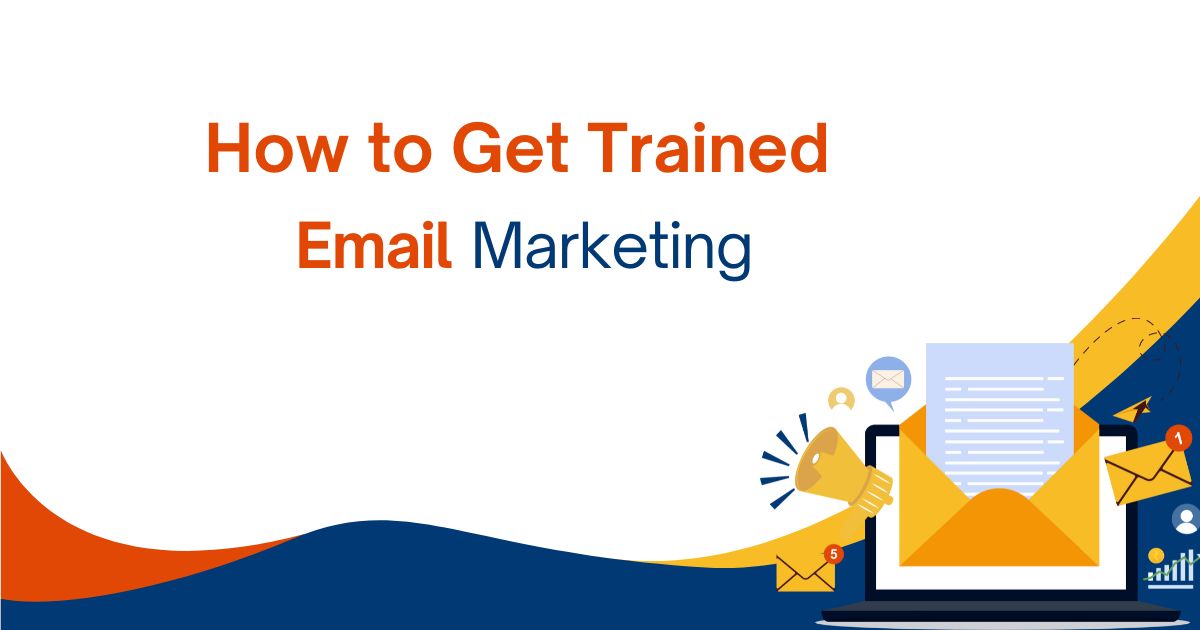
Email marketing remains one of the most effective digital marketing channels, delivering an average ROI of $42 for every dollar spent. However, mastering this powerful tool requires proper training and continuous learning. Whether you’re starting from scratch or looking to advance your skills, this comprehensive guide will show you exactly how to get trained in email marketing and build expertise that drives real results.
The email marketing landscape has evolved significantly, with new technologies, regulations, and best practices emerging regularly. Getting properly trained isn’t just about learning to send emails—it’s about understanding subscriber psychology, mastering automation workflows, analyzing performance data, and staying compliant with privacy regulations.
Why Email Marketing Training Matters
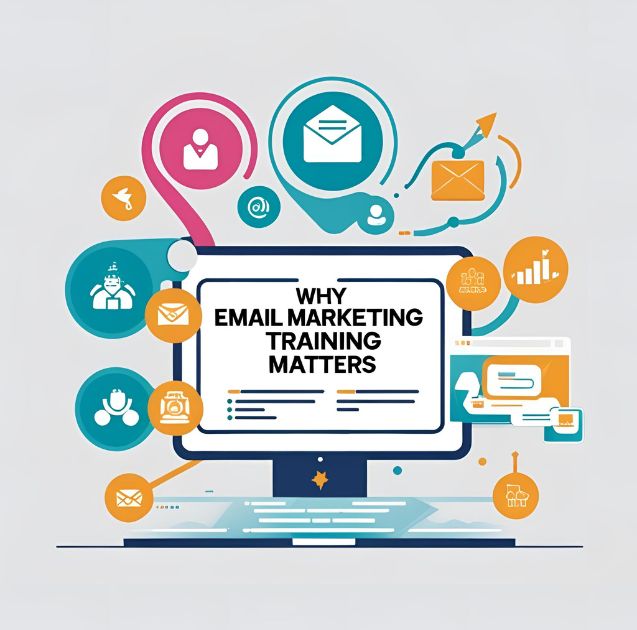
Email marketing training provides the foundation for creating campaigns that actually convert. Without proper training, marketers often make costly mistakes like poor list management, ineffective subject lines, or compliance violations that can damage the sender’s reputation and reduce deliverability.
Professional email marketing training covers essential skills including segmentation strategies, A/B testing methodologies, automation setup, and performance analytics. These skills directly impact campaign effectiveness and business results.
Training also helps you understand the technical aspects of email marketing, such as deliverability factors, HTML coding basics, and integration with other marketing tools. This knowledge prevents common pitfalls that can hurt your campaigns before they even reach subscribers’ inboxes.
Essential Email Marketing Skills to Learn
List Building and Management
Effective email marketing starts with building quality subscriber lists. Training should cover opt-in best practices, lead magnets, subscription forms, and list hygiene techniques. You’ll learn how to attract engaged subscribers rather than just collecting email addresses.
List management involves understanding segmentation strategies, subscriber lifecycle management, and re-engagement tactics. These skills help you maintain healthy lists that deliver better results over time.
Campaign Creation and Design
Email campaign creation encompasses copywriting, design principles, and template development. Training covers writing compelling subject lines, crafting persuasive email content, and designing visually appealing templates that work across devices.
You’ll learn about email accessibility, responsive design principles, and how to create consistent brand experiences through email communications. These skills ensure your campaigns look professional and perform well across different email clients.
Marketing Automation
Automation represents one of the most powerful aspects of modern email marketing. Training covers setting up drip campaigns, behavioral triggers, and complex automation workflows that nurture leads and customers automatically.
You’ll learn to create welcome sequences, abandoned cart campaigns, and re-engagement series that work around the clock to drive conversions and improve customer relationships.
Analytics and Optimization
Understanding email marketing metrics goes beyond basic open and click rates. Training covers advanced analytics, conversion tracking, and performance optimization techniques that help you continuously improve campaign results.
You’ll learn to interpret data, identify trends, and make data-driven decisions that improve campaign effectiveness over time. This includes understanding deliverability metrics, engagement patterns, and ROI calculations.
Email Marketing Training Options
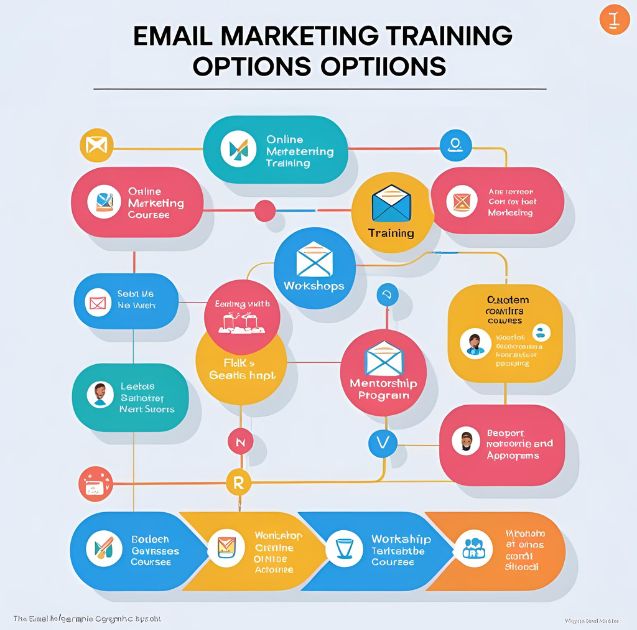
Online Courses and Certifications
Numerous online platforms offer comprehensive email marketing courses. HubSpot Academy provides free email marketing certification covering strategy, execution, and analysis. The course includes practical exercises and real-world examples.
Coursera and Udemy offer email marketing courses from industry experts, ranging from beginner to advanced levels. These courses often include hands-on projects and access to instructor feedback.
LinkedIn Learning provides email marketing courses that integrate with professional development goals. These courses cover both strategic and tactical aspects of email marketing.
Platform-Specific Training
Major email marketing platforms offer extensive training resources for their users. Mailchimp Academy provides comprehensive training on email marketing fundamentals plus platform-specific features and best practices.
Constant Contact offers webinars, tutorials, and certification programs that cover both general email marketing principles and platform-specific functionality. This training helps you maximize the tools available within their system.
Salesforce provides Trailhead modules covering Marketing Cloud functionality, including email marketing automation and personalization features. These resources combine general email marketing knowledge with platform-specific technical skills.
Professional Development Programs
Many marketing associations offer email marketing training as part of broader digital marketing education. The Digital Marketing Institute includes email marketing modules in its comprehensive certification programs.
Professional development programs often provide networking opportunities and access to industry experts. These programs typically offer more personalized learning experiences and ongoing support.
Workshops and Conferences
Industry conferences like Email Evolution Conference and Litmus Live offer intensive training sessions led by email marketing experts. These events provide cutting-edge insights and networking opportunities with other professionals.
Local marketing meetups and workshops often feature email marketing topics. These smaller events offer opportunities for hands-on learning and direct interaction with instructors.
Building Practical Experience
Start with Personal Projects
Create your own email marketing campaigns to practice new skills. Start a newsletter, promote a personal project, or volunteer to help a local nonprofit with their email marketing efforts.
Personal projects allow you to experiment with different techniques without business pressure. You can test various approaches, learn from mistakes, and build a portfolio of work to showcase your abilities.
Internships and Entry-Level Positions
Look for internships or entry-level marketing positions that include email marketing responsibilities. Many companies need help with email campaigns, providing opportunities to gain practical experience while learning on the job.
Entry-level positions often provide mentorship opportunities and exposure to professional email marketing tools and processes. This experience complements formal training with real-world application.
Freelance and Contract Work
Freelance email marketing projects offer flexibility while building experience. Start with small projects to build confidence and gradually take on more complex campaigns as your skills develop.
Freelance work exposes you to different industries and email marketing challenges. Each project teaches new skills and adds to your experience portfolio.
Volunteer Opportunities
Nonprofit organizations often need email marketing help but have limited budgets. Volunteering provides valuable experience while supporting causes you care about.
Volunteer work demonstrates your commitment to email marketing and provides references for future opportunities. It also allows you to practice skills in a supportive environment.
Advanced Email Marketing Training Areas
Email Deliverability
Advanced training covers technical aspects of email deliverability, including sender reputation management, authentication protocols, and ISP relationships. Understanding these factors helps ensure your emails reach subscribers’ inboxes.
Deliverability training covers topics like SPF, DKIM, and DMARC authentication, IP warming procedures, and reputation monitoring. These technical skills become increasingly important as email marketing becomes more sophisticated.
Personalization and Dynamic Content
Advanced personalization goes beyond using subscriber names in subject lines. Training covers dynamic content creation, behavioral targeting, and AI-powered personalization techniques that create truly individualized experiences.
You’ll learn to use subscriber data effectively, create dynamic product recommendations, and implement advanced segmentation strategies that improve engagement and conversions.
Integration and Marketing Technology
Modern email marketing integrates with numerous other marketing tools and platforms. Advanced training covers CRM integration, marketing automation platforms, and creating seamless customer experiences across channels.
You’ll learn to connect email marketing with social media, content management systems, e-commerce platforms, and analytics tools to create comprehensive marketing ecosystems.
Compliance and Privacy
Email marketing regulations continue evolving with laws like GDPR, CAN-SPAM, and CCPA. Advanced training covers compliance requirements, privacy best practices, and consent management strategies.
Understanding legal requirements protects both your organization and subscribers while maintaining trust and deliverability. This knowledge becomes increasingly important as regulations become more complex.
Staying Current with Email Marketing Trends
Industry Publications and Blogs
Follow leading email marketing blogs and publications to stay updated on industry trends, best practices, and new technologies. Resources like Campaign Monitor’s blog, Really Good Emails, and Email on Acid provide regular insights.
Industry publications often feature case studies, expert interviews, and analysis of emerging trends. Regular reading keeps you informed about evolving best practices and new opportunities.
Professional Networks and Communities
Join email marketing communities on platforms like LinkedIn, Reddit, and specialized forums. These communities provide opportunities to ask questions, share experiences, and learn from other professionals.
Professional networks offer access to job opportunities, mentorship, and collaborative learning experiences. Active participation helps build your reputation within the email marketing community.
Continuing Education
Email marketing technology and best practices evolve rapidly. Plan for ongoing training through webinars, workshops, and advanced certification programs to maintain current knowledge and skills.
Set aside time regularly for learning new techniques, exploring emerging technologies, and updating your knowledge of industry regulations and best practices.
Measuring Your Email Marketing Training Success
Portfolio Development
Build a portfolio showcasing your email marketing campaigns, including examples of different campaign types, performance metrics, and lessons learned. Document your growth and demonstrate your capabilities to potential employers or clients.
Include before-and-after examples showing how your training improved campaign performance. Quantify results with specific metrics that demonstrate the value of your email marketing efforts.
Certification Achievement
Pursue relevant certifications from recognized organizations and platforms. Certifications provide credible validation of your skills and knowledge, enhancing your professional credibility.
Display certifications on your LinkedIn profile and resume to demonstrate your commitment to professional development and expertise in email marketing.
Performance Improvement
Track the performance of your email marketing campaigns over time to measure how training has improved your results. Monitor metrics like open rates, click-through rates, conversions, and ROI to quantify your progress.
Document specific improvements attributable to new skills or techniques learned through training. This data demonstrates the value of your professional development efforts.
Your Path to Email Marketing Expertise
Getting trained in email marketing requires a strategic approach that combines formal education, practical experience, and ongoing learning. Start with foundational courses that cover essential skills, then build practical experience through personal projects, internships, or volunteer work.
Focus on developing both strategic and technical skills, from understanding subscriber psychology to mastering automation workflows and analyzing performance data. The most successful email marketers combine creative thinking with analytical skills and technical knowledge.
Remember that email marketing training is an ongoing process. The industry evolves rapidly, with new technologies, regulations, and best practices emerging regularly. Commit to continuous learning through industry publications, professional networks, and advanced training programs.
Take action today by identifying your current skill level and choosing appropriate training resources. Whether you’re starting from scratch or looking to advance your expertise, proper training will help you harness the full power of email marketing to drive business results and advance your career.


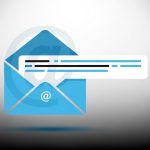
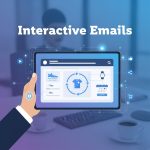
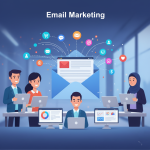







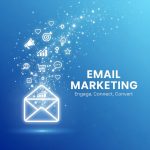
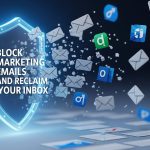
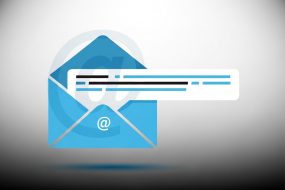
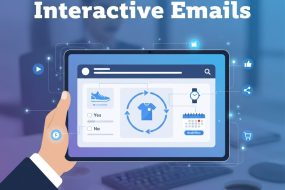


No Comments